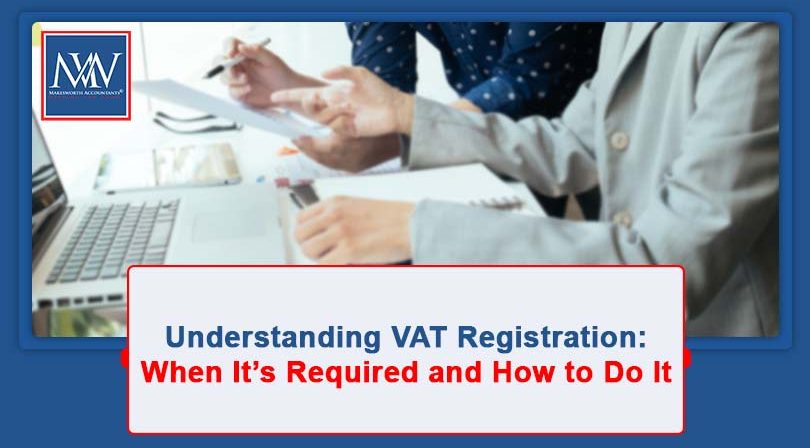
Understanding VAT Registration: When It’s Required and How to Do It
Understanding When VAT Registration Is Mandatory
If you’re operating a business in the UK—whether as a sole trader, in a partnership, or through a limited company—you must register for VAT when:
-
Your total VAT-taxable turnover exceeds £90,000 over the past 12 months, or
-
You expect your turnover to exceed £90,000 in the next 30 days alone.
Important: If both you and your business are based outside the UK but supply goods or services to UK customers (or intend to within 30 days), VAT registration is required regardless of turnover.
What Counts as Taxable Turnover?
Your VAT-taxable turnover includes the value of all goods and services you supply that are not exempt from VAT. This includes:
-
Goods taxed at the zero, reduced, or standard rate
-
Goods hired or loaned to customers
-
Business goods used for personal use
-
Items received through barter, part-exchange, or as gifts
-
Services from overseas subject to the reverse charge
-
Goods and services under the domestic reverse charge rules
-
Construction services worth over £100,000 carried out by your business
Key VAT Registration Deadlines
1. Past 12 Months Turnover Breach
If your business crosses the VAT threshold based on your turnover in the last 12 months, you must:
-
Register within 30 days of the end of the month in which the threshold was breached
-
Your VAT registration becomes effective from the first day of the second month after the breach
Example:
Bella is a sole trader. On 7 July 2025, her taxable turnover in the previous 12 months exceeds £90,000. She must register for VAT by 30 August 2025, and her registration takes effect from 1 September 2025.
2. Expected Turnover in the Next 30 Days
If you know your turnover will exceed the VAT threshold within the next 30 days, you must:
-
Register by the end of that 30-day period
-
Your registration is effective from the date you realised the threshold would be exceeded
Example:
On 17 July 2025, Cameron signs a contract to supply goods worth £102,000. He must register by 16 August 2025, but his VAT registration is effective from 17 July 2025—the day he signed the contract.
Consequences of Late Registration
Failing to register on time can be costly. You’ll be required to:
-
Pay VAT due from the date registration should have occurred
-
Potentially face late registration penalties from HMRC
Businesses that exceed the threshold temporarily may apply for an exception from registration, if they can show turnover will fall back below the threshold.
How to Register for VAT
You can complete your VAT registration online via the HMRC website:
Register for VAT – GOV.UK
Here’s what you’ll need, depending on your business structure:
For Sole Traders or Partnerships:
-
National Insurance number
-
Valid ID (e.g. passport)
-
Bank account details
-
Unique Taxpayer Reference (UTR)
-
Annual turnover figures
-
Estimate of taxable turnover for the next 12 months
For Limited Companies:
-
Company registration number
-
Business bank details
-
UTR
-
Turnover figures (current and projected)
In some cases—such as applying for the Agricultural Flat Rate Scheme—registration must be done by post, not online.
Should You Register Voluntarily?
Even if your turnover is below the £90,000 threshold, you can voluntarily register for VAT. This allows you to:
-
Charge VAT on your sales
-
Reclaim VAT on business expenses
Voluntary registration can be advantageous, especially if your supplies are zero-rated and you incur VAT on purchases.
Final Thoughts
Understanding VAT registration requirements is vital for staying compliant and avoiding penalties. Whether registering due to growth or opting in voluntarily, ensure you’re prepared with the right information and meet your obligations on time.
For more information, Book a Free Consultation
Need Accountancy Support?
For information on bespoke training, or if you have any other questions for Makesworth Accountant, please fill in your details below
















 151
151